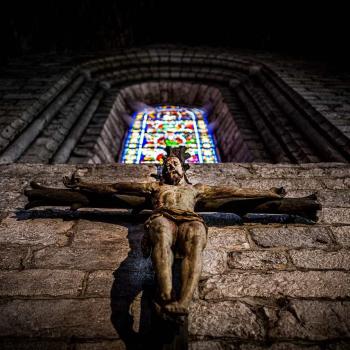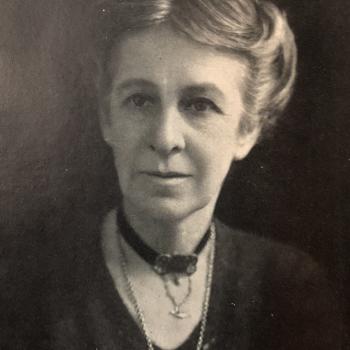
A reader named Thomas wrote to me:
Dear Sir;
Blessings. Where can a person go to be a hermit. I am called to a life of solitude. But I don’t know where to go. Do you have any ideas?
Dear Thomas,
Thanks for writing. Feeling called to a life of solitude is a serious matter. Let me share with you some thoughts, based on my understanding of what the tradition teaches. I hope you will find this information useful.
There have been hermits and solitaries throughout Christian history. Many of the desert mothers and fathers lived as hermits. The same can be said for some of the early Celtic Christian saints. In the middle ages, Richard Rolle, one of the most famous of English mystics, was a hermit. Julian of Norwich, while not a true hermit, did live and enclosed life of solitude. In modern times, the great American mystic Thomas Merton spent the last few years of his life living in a hermitage on the grounds of Gethsemani Abbey.
At the same time, the Christian tradition takes a cautionary approach to the eremitical life (eremitical being just a fancy word for “hermit” — you can see the similarities between the words). Saint Benedict, who wrote the famous Holy Rule for monks and monasteries, described hermits as monks who “are no longer in the first fervour of the monastic life, but have been trained by a lengthy period of probation in the monastery with the support of many others…”
In other words, as St. Benedict saw things, becoming a hermit required first being a monk in a monastery.
There are some common sense reasons for this. The solitude of the eremitical life can actually be psychologically dangerous for someone who lacks the emotional or spiritual maturity, or mental well-being, to handle it. Human beings are created to be in relationship with one another. “It is not good for the human to be alone,” remarked God after creating the Adam. A genuine (from God) call to the life of a hermit, as St. Benedict saw it, was usually a special vocation that came later in life, after spending time in a community of like-minded monks, so that a person could attain mental, emotional, and spiritual maturity.
Discerning Your Vocation
Thomas, your question is basically a question of discernment. You feel called to a life of solitude. The question is, does that call come from God, or could it just be your imagination? Of course, I cannot answer that question for you. But it is a question that you yourself must face. And like any other important question for the spiritual life, it should not be faced alone.
If you are a practicing member of an Anglican, Catholic, or Orthodox church, I would encourage you to pray about monastic life. Visit some monasteries that are in your tradition. When you visit, ask to speak to the vocation director and share with him your interest in the eremitical life. See what advice he might have for you. And keep in mind that, for nearly all persons with a call to religious solitude, that call begins in the monastery. First become a monk, and then prayerfully see if you have a genuine call into solitude.
If you are Catholic, and truly hunger for solitude now, look into the Carthusian Order. They are an order of Catholic monks who spend much of their life in solitude, although they do gather for prayer and weekly recreation. It’s one of the most austere yet beautiful monastic traditions, and just might provide you with the kind of solitude you yearn for. To learn more about the Carthusians, I recommend the book An Infinity of Little Hours by Nancy Maguire.
If you are not currently the member of an Orthodox, Catholic, or Anglican Church, you can find other ways to explore a life totally given to God. There are a growing number of ecumenical, evangelical, and mainline Protestant Christian intentional communities. While most of these communities are structured very differently from traditional monasteries, they can still offer you a rich opportunity to express your faith in God by relating to other people in a communal way. Once again, if you have a genuine call to solitude, communal life will deepen that call but also prepare you to answer the call successfully.
If you simply do not have access to a monastery or some other kind of intentional Christian community, you could at least seek out a spiritual director who can pray with you and talk to you about your sense of a calling. Spiritual directors are Christians (or persons of other faiths) who have a dedicated ministry of providing support and companionship to people who are serious about a sustained life of prayer. A good spiritual director can teach you about prayer, help you to grow in your own awareness of God’s presence in your life, and answer your questions as you seek to be a more committed, daily person of prayer.
“Whose Feet Shall You Wash?”
I realize this answer might be a little disappointing to you — but I hope you will appreciate that the Christian tradition has always tried to balance the calling of the individual with the needs of the community. Christianity is not a do-it-yourself religion. As St. Basil the Great once said to the hermits of the desert, “If you live alone, whose feet shall you wash?” In other words, let’s not lose sight of the fact that Jesus calls us to love our neighbors, which includes being of service (“washing their feet”). If your sense of being called into the eremitical life is truly from God, then taking the time to explore life-in-community will simply deepen your sense of being called, while also giving you the psychological and spiritual skills you would need to be a healthy and happy hermit.
Pray every day, Thomas. Cultivate silence in your life, for at least 20 – 40 minutes each day. And trust the process.
Wishing you every blessing,
Carl
Enjoy reading this blog?
Click here to become a patron.














